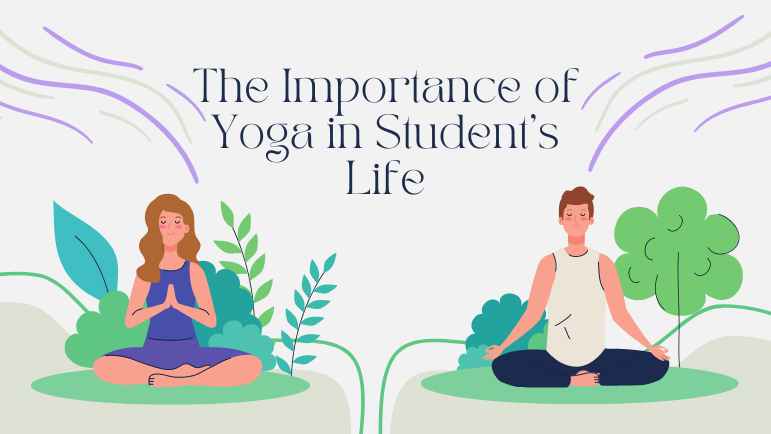
Introduction
In today's fast-paced and demanding world, students face various challenges that can impact their overall well-being and academic performance. Incorporating yoga into their daily routine can be a game-changer. In this blog, we explore the profound importance of yoga in a student's life, highlighting how this ancient practice cultivates mind-body balance and nurtures holistic development.
Stress Management:Yoga provides students with effective tools to manage stress and anxiety. Through breathing exercises, meditation, and mindful movement, students learn to calm their minds, reduce tension, and enhance their overall mental well-being.
Improved Concentration and Focus:Regular practice of yoga enhances concentration and focus. The combination of physical postures, controlled breathing, and mindfulness techniques helps students develop better attention spans, leading to improved academic performance and productivity.
Enhancing Physical Fitness:Yoga is a holistic exercise that strengthens and stretches the body. Through various asanas (poses), students improve flexibility, balance, coordination, and overall physical fitness. Regular yoga practice promotes a healthy lifestyle and fosters a positive body image.
Boosting Emotional Well-being:Yoga promotes emotional balance by encouraging self-awareness and self-acceptance. Students learn to regulate their emotions, build resilience, and develop a positive outlook on life. Yoga also provides a safe space for students to express and release emotions.
Developing Self-Discipline:Yoga instills self-discipline in students as they commit to a regular practice. By setting aside dedicated time for yoga, students cultivate discipline, consistency, and a sense of responsibility towards their well-being.
Enhancing Social Skills:Yoga classes often involve group activities and partner work, fostering a sense of community and cooperation. Students learn to communicate, collaborate, and support each other, developing essential social skills and empathy.
Cultivating Mindfulness:Yoga promotes mindfulness, which is the practice of being fully present in the moment. Students learn to pay attention to their thoughts, emotions, and physical sensations, enabling them to respond to situations with clarity and equanimity.
Better Sleep Quality:Yoga helps students unwind and relax, leading to improved sleep quality. By practicing calming techniques and releasing physical tension, students experience deeper and more restful sleep, enhancing their overall well-being.
Building Confidence:Yoga encourages self-reflection and self-acceptance, allowing students to develop a positive self-image. As they achieve new poses and overcome challenges, their confidence grows, leading to a positive impact on their academic and personal lives.
Life-long Wellness:The skills and principles learned through yoga extend beyond the classroom, providing students with valuable tools for life. The practice of yoga equips students with self-care techniques, stress management strategies, and a holistic approach to overall well-being.
Conclusion
Integrating yoga into a student's life offers numerous benefits that support their holistic development. From managing stress and improving concentration to fostering emotional well-being and building self-discipline, yoga serves as a valuable tool for students to thrive academically, emotionally, and physically. So, let's encourage students to embrace the transformative practice of yoga and witness the positive impact it has on their journey towards a balanced and fulfilling life.